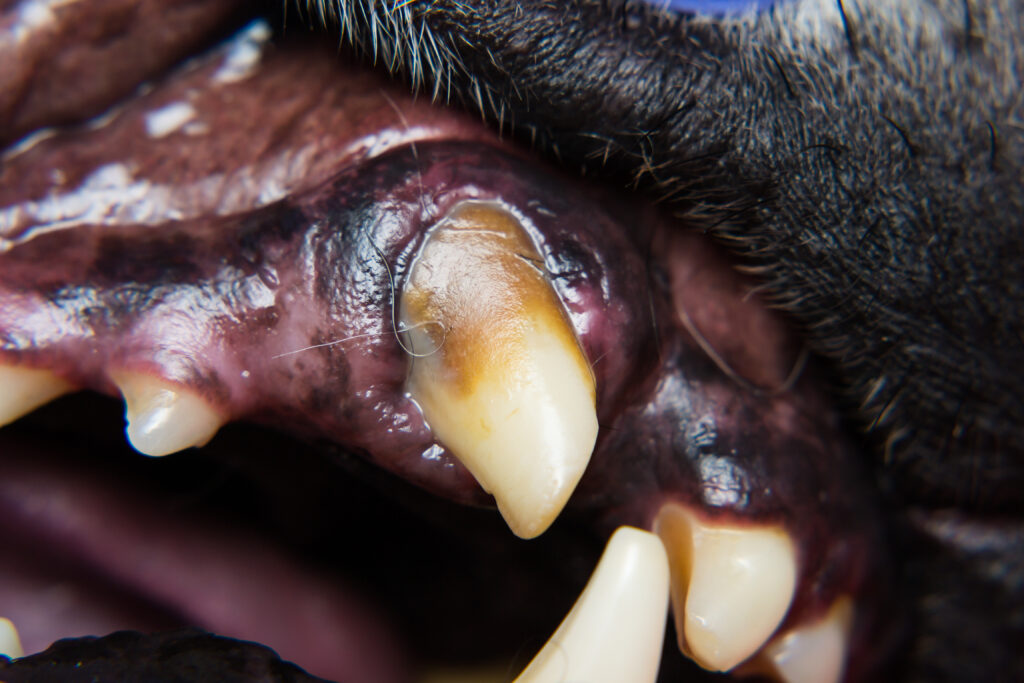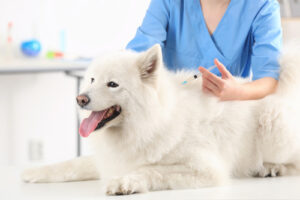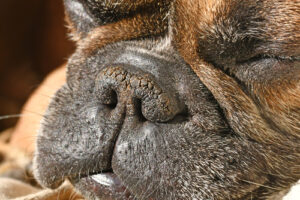Discovering your dog has a broken tooth can be a worrying experience. As a responsible pet owner, it’s important to understand the signs, causes, and necessary steps to ensure your dog’s dental health. In this blog, we’ll discuss what a broken tooth in dogs means, how to recognize it, and when to seek professional care at World of Animals Veterinary Hospital. We’re here to guide you through prevention and care for your dog’s broken tooth.
Signs and Symptoms of a Broken Tooth in Dogs
Identifying a broken tooth in your dog is the first step in addressing this dental issue. Common signs include:
- Visible tooth damage
- Bleeding around the mouth
- Difficulty eating
- Sudden change in behavior such as decreased playfulness
- Pawing at the face
- Showing signs of pain and discomfort
These symptoms are indicators that your dog might be suffering from a broken tooth, and prompt attention is needed.
Common Causes of Broken Teeth in Dogs
Understanding the causes of a broken tooth can help in preventing this issue. The most common causes include chewing on hard objects, such as bones or toys, trauma to the mouth, or even due to underlying dental problems. Dogs that love to play rough or are overly enthusiastic chewers are particularly at risk. It’s important to monitor what your dog chews on to minimize the risk of a broken tooth.
Effects of an Untreated Broken Tooth
Increased Risk of Infection
Ignoring a broken tooth in your dog can lead to significant health problems, some of which may not be immediately obvious. The most immediate concern is the risk of infection. A broken tooth exposes the inner, more sensitive parts of the tooth, creating an entry point for bacteria. This can result in a painful abscess or a systemic infection that could spread to the bloodstream and other organs.
Symptoms of Pain or Discomfort
Pain and discomfort are also major concerns. Dogs are adept at hiding discomfort, but a broken tooth can cause persistent pain, affecting their quality of life. This might manifest as reluctance to eat, especially hard food, or a decreased interest in play.
Preventable Diseases
Long-term, an untreated broken tooth can lead to dental issues such as periodontal disease. This condition affects the tissues surrounding the teeth, potentially leading to tooth loss, bone damage, and further infection. Periodontal disease has also been linked to other systemic health problems in dogs, like heart disease and kidney problems.
Nutritional Deficiencies and Weight Loss
Impact on a dog’s nutritional intake should not be overlooked. Dental pain can lead to difficulty in eating, which in turn can result in weight loss and nutritional deficiencies. This can be particularly detrimental for puppies or older dogs, who have specific dietary needs for their growth and overall health.
An untreated broken tooth is not just a dental issue but a potential threat to your dog’s overall health and well-being. Regular pet dental check-ups at World of Animals Veterinary Hospital can help in early detection and treatment, ensuring your pet’s health and happiness. If you notice any signs of dental distress in your dog, don’t hesitate to reach out to us for professional advice and care.
When to Seek Veterinary Care
If you suspect your dog has a broken tooth, it’s time to seek professional care. Signs of severe pain, swelling, and difficulty eating are clear indicators that a visit to World of Animals Veterinary Hospital is necessary. Our veterinary team can provide a thorough examination and the best course of action for your pet’s dental health. Don’t hesitate to call us or request an appointment online for expert care.
Preventing Broken Teeth in Dogs
Prevention is key when it comes to your dog’s dental health. As a responsible pet owner, here’s how to help prevent any dental emergencies from occuring:
- Start by providing safe, dog-appropriate chew toys and avoiding hard objects that can cause damage.
- Regular dental check-ups at World of Animals Veterinary Hospital are essential to catch any dental issues early.
- Additionally, maintaining good oral hygiene at home, like brushing your dog’s teeth, can significantly reduce the risk of broken teeth.
Ensuring Your Dog’s Dental Health
Understanding and addressing a broken tooth in your dog is vital for their overall health and happiness. From recognizing the signs to knowing when to seek professional help, being proactive about your dog’s dental care is essential. Remember, prevention is just as important as treatment. By providing safe chew toys, maintaining regular dental hygiene, and scheduling check-ups at World of Animals Veterinary Hospital, you can help ensure your dog’s teeth stay healthy and strong. If you’re concerned about your dog’s dental health or suspect a broken tooth, don’t hesitate to contact us. We’re here to provide expert care and advice, ensuring your beloved companion remains happy and healthy for years to come.





